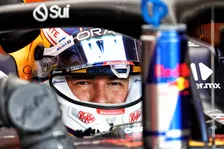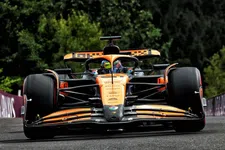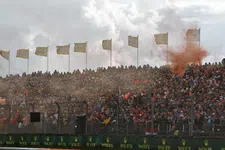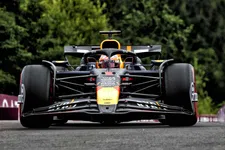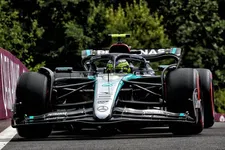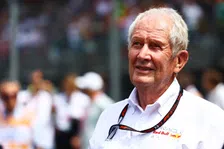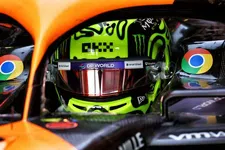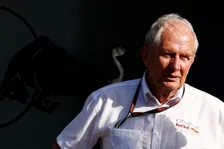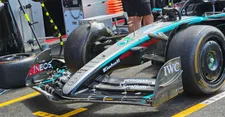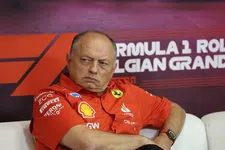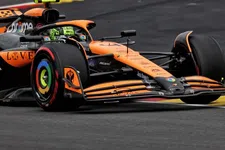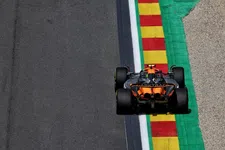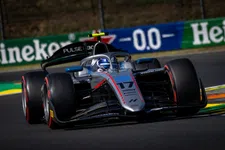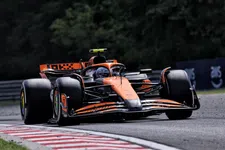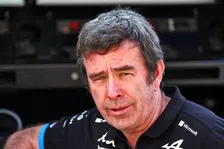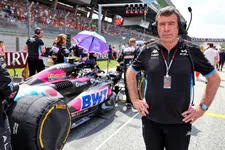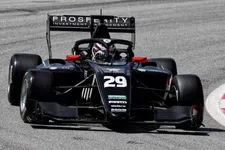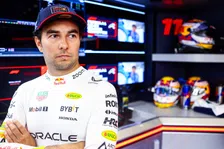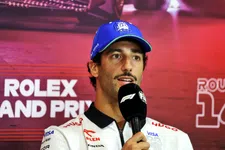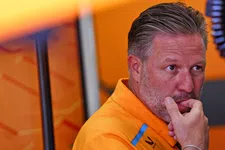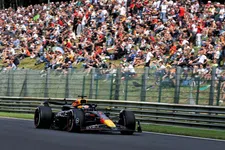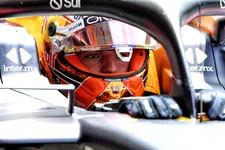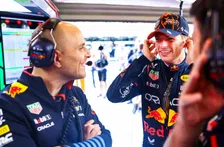Interview
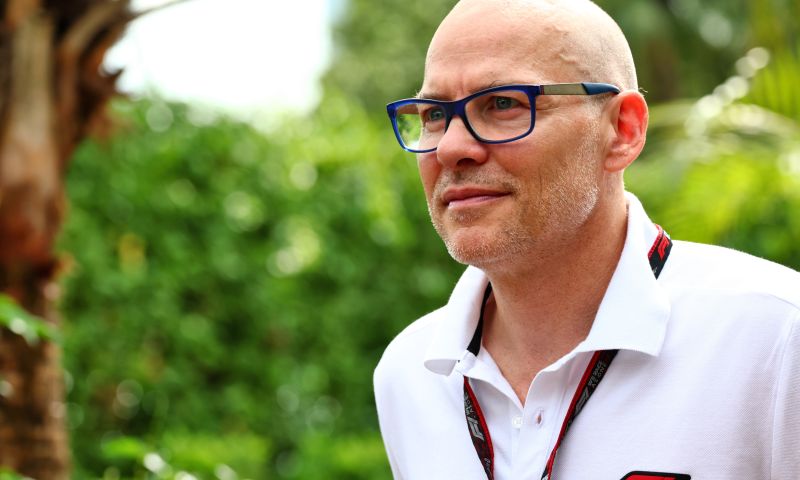
Villeneuve: 'A role like Lauda I, that would be more like me'
- Ludo van Denderen
Jacques Villeneuve is back. The 1997 Canadian Formula 1 World Champion [52] has been driving a hypercar for the Vanwall Racing Team in the World Endurance Championship (WEC) since the start of this season. Fast on the track and outspoken as ever off it. "You can get a very long career just because you make a name, even if your talent is average," he said in an exclusive interview with GPblog.
Formula 1, IndyCar, NASCAR, to name a few. You've driven in almost every international series. What is it like driving in WEC now?
Villeneuve: "I've never stopped racing, but it's never been full championships after F1. That's always been difficult, except on ice racing. I think I did a full championship there. So to get back in a world championship with Manuel, the WEC is really building up now. It's the right time to be in it. It's exciting."
Were there more options for racing in recent years?
"No, there wasn't. I was doing the Euro NASCAR. It was a question of time. I was very busy with the TV commentary, which I've reduced now. Racing is a big commitment. And also for the family. It's a sacrifice that the rest of the family has to make. Not just for the driver, it's not a sacrifice because we love driving. I've focused a lot on racing in NASCAR in the States. That was tough to get going. So there was never the opportunity to get back fully into racing."
Yet, this comes along and you said 'yes'. Why
"Opportunity, timing."
But not because the hypercar is such an attractive project?
"Oh yes, but I would have raced every year since F1 as full season. There was not time or opportunity. It wasn't a question of not wanting to race. I was always wanting to race."
Do you miss the single-seaters, like Formula 1 or IndyCar?
"It depends on which year of F1 you tell me. There are some years I really don't miss at all. The Sauber BMW years I don't miss at all. The Williams year, of course. Because the car was designed for me. So it did everything I wanted. So that's fun. It depends a lot on that."
How do you view Formula 1's sudden popularity in the United States?
"It's amazingly popular. It's great. It's a good thing. It's making every form of racing more popular. It's not just F1 that's getting bigger. The bigger F1 gets, every racing gets bigger. People just love racing more and more."
They also love the characters. You would have been great in the Netflix series Drive to Survive, wouldn't you?
"I don't know. I think it was easier to be yourself in the past. Because you didn't have all the social media. And it's always difficult with social media to find out what is the truth, what is built. What is created. I don't know. I think that now we have drivers that are stars. They are actually pretty average drivers. You don't need to be a good driver now to have a huge image. That's the biggest difference from the past. I think. And you can get a very long career just because you make a name, even if your talent is average."
You were always very outspoken as a driver.
"There are not many outspoken drivers now. Is it being outspoken? Or is it…It's difficult to say because with social media you know that you have a canvas. So every thought that comes out is thought out. It's not all natural and spontaneous. It's very difficult to judge. But it's helped F1 and racing to become so big. It's amazing. I would have gotten in trouble. With the modern social networks and all that. I think I would have gotten in trouble. I was having fun. I was just being me. Times have changed. And you have to evolve with your time."
When I walk through the paddock everyone still knows you. They still want an autograph from you.
"A lot of people wonder why I'm not blonde right now! A lot of people remember me as being blonde."
You left something behind. A legacy in motorsport.
"Normally winning helps. That's stamped. You cannot take that away. It's not just an image. If you look at the 90s, I was probably a little bit different than what the normal driver was. That was mainly groomed in Europe or South America. I did my racing in Japan in North America. I think my outlook was a little bit different as well."
Of course, that's part of you. That's what everyone likes. You still like that image?
"I was only allowed to be me because I was winning. If I didn't win, it would have had the opposite effect. Winning gives you the freedom to be who you are. That helped a lot."
How do you feel about your former manager and business partner Craig Pollock's plans to start a Formula One team, Formula Equal?
"I'm not involved. I've been, obviously, once in a while in the chat because we've known each other. Even if we had our falling out and we didn't... There were some very difficult years. I haven't followed from the inside what's going on. The approach seems right. It seems to be very modern with the equality aspect. This is what everybody wants. That kind of approach is difficult to say no to.
I don't think you are the kind of person who says 'I want a female driver because she is a woman'?
“I didn't read anywhere that what they were looking for is for a female driver. It says equality. You still have to find them. The goal is great. Now, is it doable? That I don't know. You have to look at the positives and the negatives. There are a lot of negatives that happened with me [during Pollock and Villeneuve's time at BAR] because we're very close. At some point, the management stopped running the [BAR] team. That created a lot of issues and, ultimately a lot of damage to me as a driver. That's on a personal side. On the team building thing, because I also built that team even though it was kept hidden, that team is now Mercedes.
It wasn't something you wanted to do, become a team manager or some other management role?
"I don't know. I never thought about that. I love the racing, I love the competing, I love that you can win or lose that kind of adrenaline. Would I be able to get that outside the car? Maybe? I don't know."
Running a team involves a lot of politics.
"It depends. If you look at some teams, when you look at the Haas team, there's not much politics. They're also not winning. There's not much politics there. It doesn't have to be political. I don't know. I've never been in that position. Running a full team like the team principal, it also means a lot of taking care of a factory and human resources. I don't think that's something I would be good at. More like a Niki Lauda role; I think that would be more me."
Maybe at Formula Equal?
"Let's see if the team happens. Right now I'm focusing on racing. You look at every opportunity. My goal right now is to get this racing as good as possible. But yes, being involved in a team in F1, in a position other than just smiling, a position that actually has an effect on what's happening with the team, with decisions, the drivers, but not as a team principal. That's something that could be very exciting."

